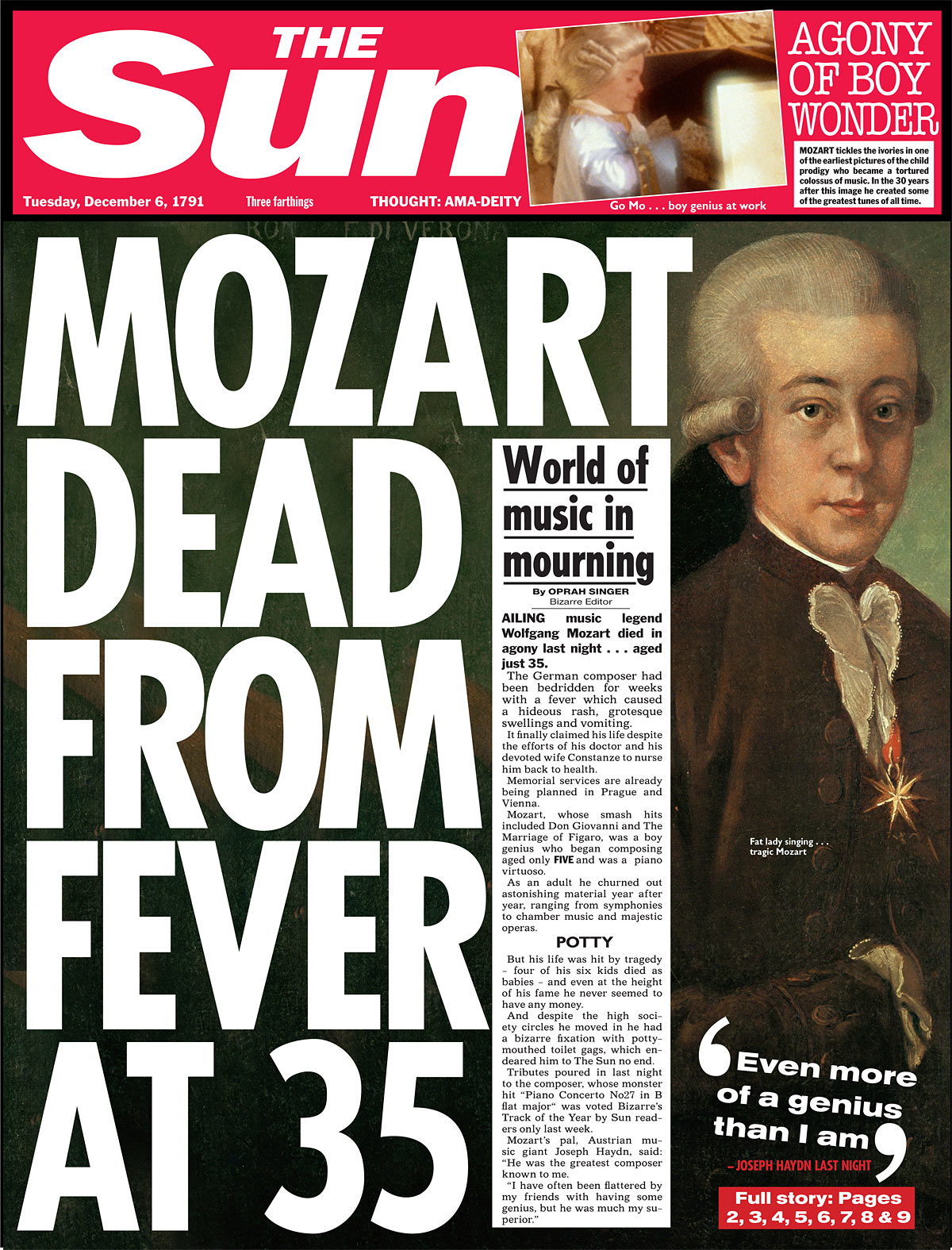Was Mozart a prodigy — or just a hard worker?
.
Sounds like heresy to ask “Was Mozart a prodigy?”
I know, you’re screaming “He was playing for kings when he was 3 and doing concerts in the womb!” Hold on a minute.
The real story has a lot less magic and a lot more hard work.
Via The Genius in All of Us: New Insights into Genetics, Talent, and IQ:
The reality about Mozart turns out to be far more interesting and far less mysterious. His early achievements— while very impressive, to be sure— actually make good sense considering his extraordinary upbringing. And his later undeniable genius turns out to be a wonderful advertisement for the power of process.
So was Mozart a prodigy?
Frankly, today’s helicopter parents and tiger moms would have loved Mozart’s dad.
This guy was a talented musician and teacher and once he got it in his head that his kids were going to be great musicians, well, he was like a terrier with a frisbee — he wasn’t letting go.
Via The Genius in All of Us: New Insights into Genetics, Talent, and IQ:
Mozart was bathed in music from well before his birth, and his childhood was quite unlike any other. His father, Leopold Mozart, was an intensely ambitious Austrian musician, composer, and teacher who had gained wide acclaim with the publication of the instruction book Versuch einer grüendlichen Violinschule (A Treatise on the Fundamental Principles of Violin Playing). For a while, Leopold had dreamed of being a great composer himself. But on becoming a father, he began to shift his ambitions away from his own unsatisfying career and onto his children…
He started with Mozart’s older sister and used teaching techniques that ended up being hundreds of years ahead of their time. And boom: Nannerl Mozart was great pianist and violinist:
As a music teacher, though, he was centuries ahead of his time. Eventually, his focus on technique and his impulse to teach very young children would be widely adopted by Shinichi Suzuki and other twentieth-century instructors. But this was quite rare in the eighteenth century; only a handful of families in the world could have conceivably enjoyed the same level of in-family attention, expertise, and ambition. With first-rate home instruction and exceptional amounts of practice, Nannerl Mozart became, over the course of a few years, a dazzling pianist and violinist— for her age.
But she was just the warm up. Tiger Woods’ father had nothing on Leopold Mozart.
The guy doubled down on his son and started ignoring his day job to focus on turning little Wolfgang into a piano playing earthshaker:
From the age of three, then, Wolfgang had an entire family driving him to excel with a powerful blend of instruction, encouragement, and constant practice. He was expected to be the pride and financial engine of the family, and he did not disappoint.
Here’s the thing: Mozart wasn’t that great.
Like most prodigies, he was great for his age. He couldn’t have gone head to head with the great key ticklers of the era, but for a child he was very impressive.
For kids who receive the type and intensity of training he did, frankly, it’s not uncommon to be that good — and some kids these days are actually better:
Still, like his sister, the young Mozart was never a truly great adult-level instrumentalist. He was highly advanced for his age, but not compared with skillful adult performers. The tiny Mozart dazzled royalty and was at the time unusual for his early abilities. But today many young children exposed to Suzuki and other rigorous musical programs play as well as the young Mozart did— and some play even better.
Are you a prodigy? No? Well neither was Mozart.
Work hard and be awesome.
Join 45K+ readers. Get a free weekly update via email here.
Related posts:
What does nearly every genius have in common when it comes to work habits?
Checklist: Are you doing these five things to be the best?
Is it true that 10,000 hours of practice will make you an expert at something?




